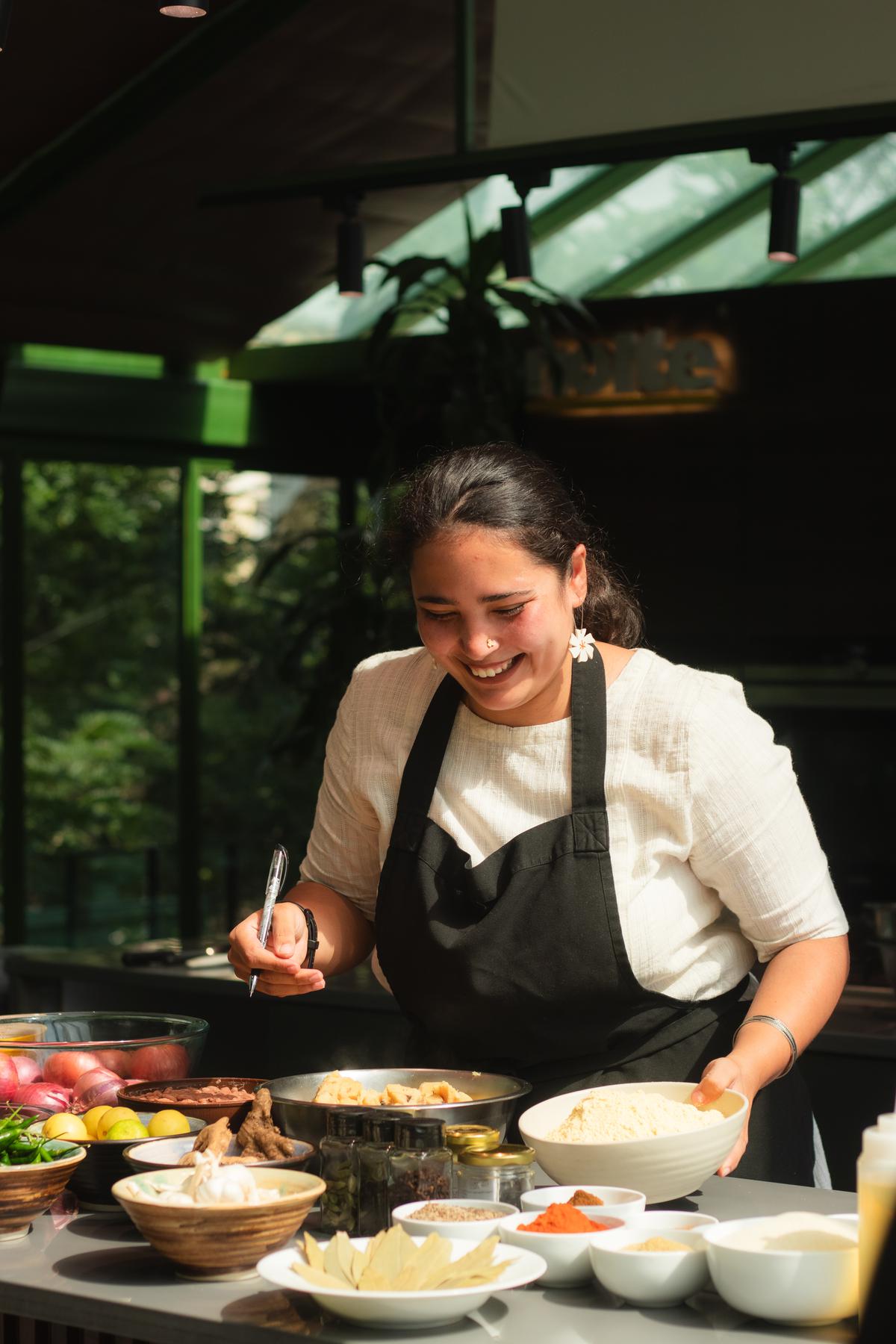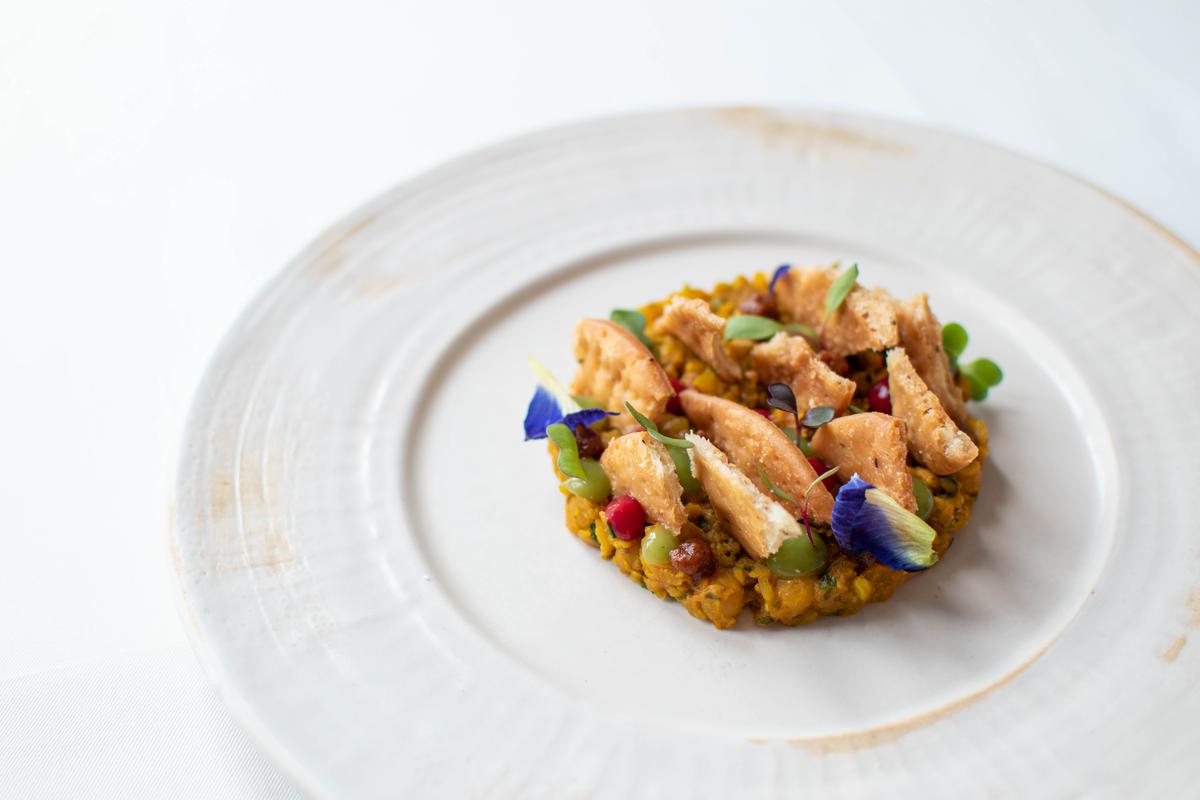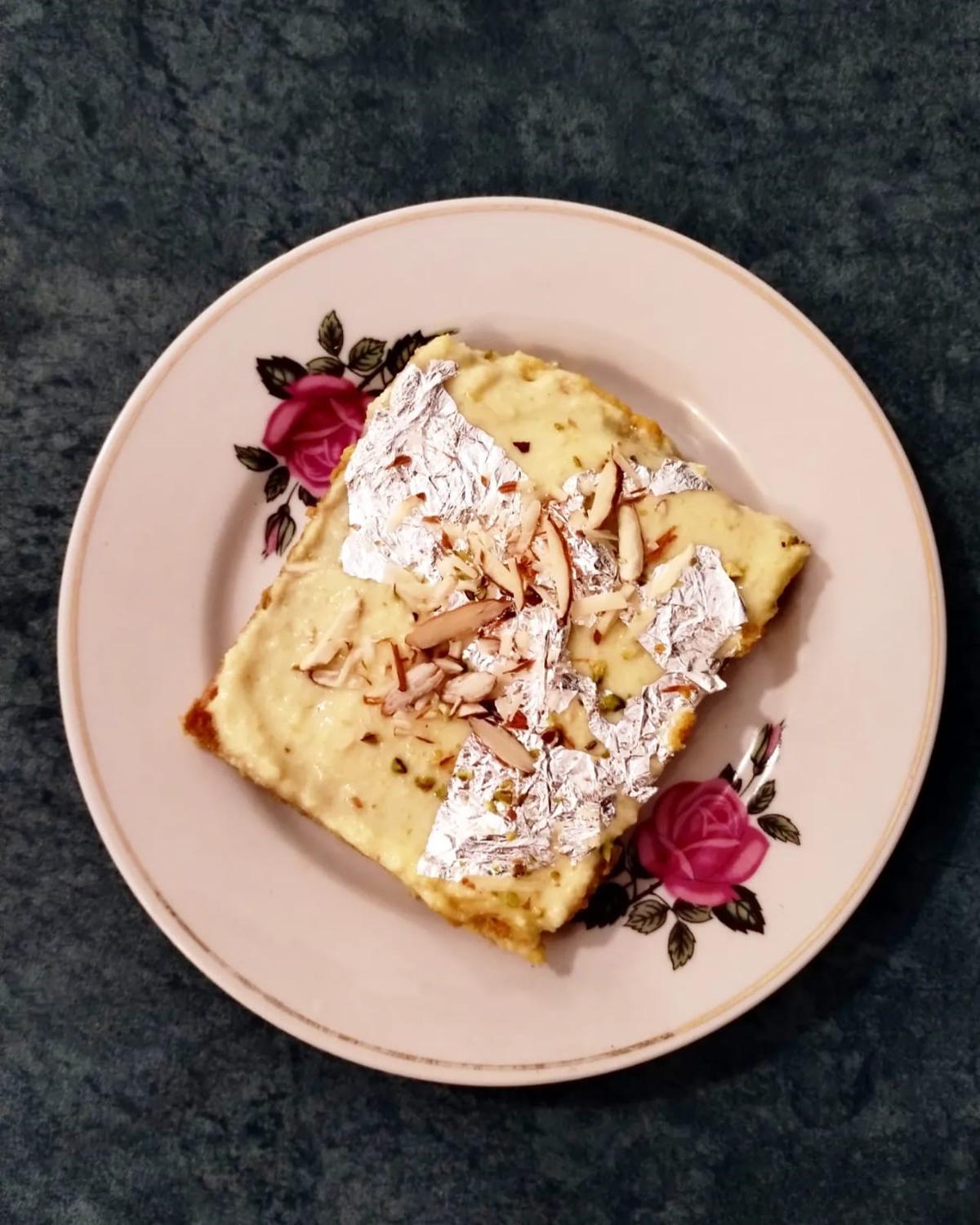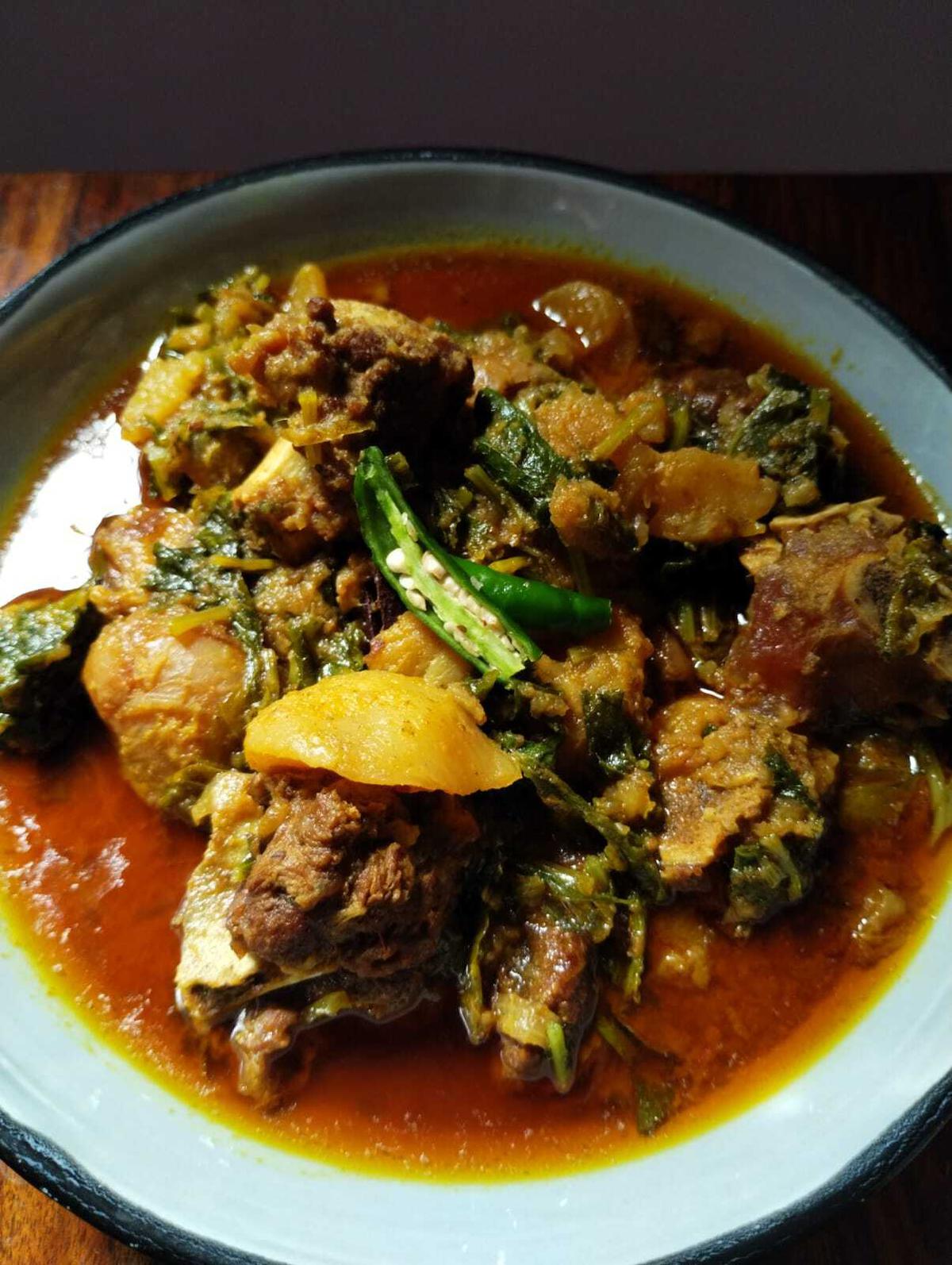Mango malai.
| Photo Credit: SPECIAL ARRAGEMENT
Taiyaba Ali fondly remembers the first dish she learned to prepare. “I started cooking at a very early age, and one of the first things I cooked was paratha and aloo tamatar ki sabzi.” Having a working mother, she picked up her mother’s on-the-go thinking in the kitchen and the intricacies of Lakhnawi food from her maternal grandmother with whom Taiyaba had spent most of her time in the kitchen at home.
When Taiyaba moved to Delhi for her undergraduate studies, the food scene in her life was not a happening one, “I lived in a PG where food was horrible, I would spend most of my time on Zomato rather than on Facebook. I was watching a lot of cooking shows, which became my escape and also helped me pick up the nuances of professional cooking.”

Taiyaba Ali
| Photo Credit:
SPECIAL ARRAGEMENT
Taiyaba, a student of English Literature wanted to pursue a PhD in oral traditions in the bazaars of Lucknow. However, she was met with disappointment when, “People in my interview panel suggested that as a student of English Litt, my topic was not a suitable one, I should consider a hospitality college instead.”
Taiyaba then decided to take a different route to tell her story, “Most university research is not accessible to the wider public. I decided to do my research and groundwork and that is how I started writing about food.”

Khasta matar chat.
| Photo Credit:
SPECIAL ARRAGEMENT
Community and food
Taiyaba believes that “When we are talking about communities, we are also talking about the cultural relationships that food defines.” She started writing about Muslim food, particularly Lakhnawi food because “that is something that came naturally to me.” Taiyaba talks about how the role of women in the Lucknow food scene is never discussed. “They are not seen as active contributors. That also piqued my interest in writing about food and particularly Lakhnawi food.”
“I wanted to tell people there’s so much more to Lakhnawi cuisine than the kebabs and biriyani that people generally associate Lucknow food with.” Winters in Lucknow, Taiyaba emphasises, are filled with gorgeous winter produce and food dedicated to it, “My mother and grandmother would look forward to getting freshly plucked saag or greens from the bazaar and cooking that particular winter dish.”

Shahi tukda.
| Photo Credit:
SPECIAL ARRAGEMENT
The beginning
“During the lockdown, I was laid off from my job at a leading daily newspaper; this gave me time to rethink my association with food so far. It also helped me pursue my passion.” Taiyaba started doing weekly dinner menus with seasonal specialities which helped her get started.
Taiyaba says her internship with Chef Anumitra of Edible Archives in Goa, helped her gain a lot of perspective, about not just food but also produce. “During the three months I spent there, I would work in the garden, learning how to prepare the soil, and in the evenings we would cooking using locally sourced ingredients, some of which included what we grew in the backyard.”

Shalgam Gosht (Meat and Turnips)
| Photo Credit:
SPECIAL ARRANGEMENT
Lakhnawi food
Taiyaba explains how when it comes to Lakhnawi food, “More than the ingredients, it’s the approach that matters. Lucknow’s food is known for its precise flavours, which is something that defines everything that we cook.”
“Minimal flavouring goes into our dishes; basically you should be able to taste the ingredients going into the food. There is also a big mix and match of meat and vegetables simply because there is an abundance of it.”
“People think most of our food is cooked in ghee, whereas it is only used to tempering. Most of our curries are cooked using mustard oil.”
“Since only 30% of Lucknow is a Muslim population, there is a huge percentage that does not consume meat and plant-based food is a huge part of Lucknow culture. However, globally that is not talked about very much.”
Upcoming pop-up
Taiyaba who now resides in Bengaluru, describes the city as a place that has a “great market for independent creators.” Her upcoming pop-up in the Conservatory is called, ‘A Farewell to Lakhnawi Winter’ which is an ode to the winter months in Lucknow where produce is abundant in the market and includes greens, fruits, and root vegetables.
“The menu represents my politics of food, the food that I have grown up eating, mostly home-style cooking. I am very grateful to Bengaluru as a chapter in my journey because it has given me the space to do what I want to do.”